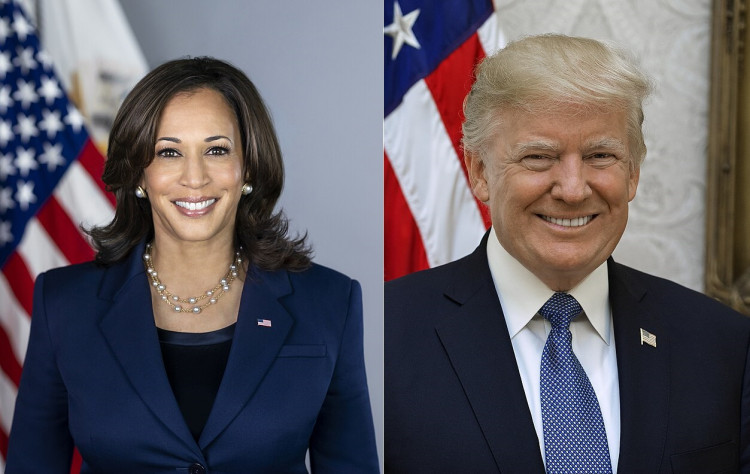Vice President Kamala Harris, now leading the Democratic ticket with running mate Tim Walz, is making notable strides in her bid for the White House against former President Donald Trump. With Election Day drawing closer, the latest national polls show Harris gaining ground, particularly in critical battleground states where the outcome of the election could be decided.
A new average of national polls compiled by FiveThirtyEight indicates that Harris currently holds a 2.7-point lead over Trump. This lead, while slim, underscores the momentum Harris has maintained since stepping in to replace President Joe Biden on the Democratic ticket. Republicans have attempted to downplay Harris's growing lead as merely a "honeymoon phase," yet the vice president's consistent advantage in the polls suggests she is holding onto this momentum as the campaign intensifies.
The battleground states, which include Arizona, Georgia, Michigan, Nevada, North Carolina, Pennsylvania, and Wisconsin, are once again the focal points of the presidential race. Fresh data from the Cook Political Report reveals that Harris is leading in six out of these seven states, with Trump holding onto a lead in Nevada. The most substantial swing is observed in Arizona, where Harris now leads-a state that Biden won by a razor-thin margin of just 0.4% in 2020.
This shift is a dramatic turnaround from earlier polling in May when Trump led in six battleground states in a hypothetical matchup against Biden. However, Harris's entry into the race has altered the dynamics, with her campaign gaining traction in regions where Biden previously struggled. Polling from YouGov/CBS, conducted up until August 2, shows that neither candidate has a significant lead in the battlegrounds, reflecting the volatile nature of these key states.
Harris's surge in support is evident in the latest YouGov/Economist poll conducted from August 11 to 13, which shows her maintaining a steady lead over Trump, with both candidates seeing a marginal 1-point increase from the previous week. Harris now sits at 46% support, while Trump trails at 44%. Independent voters remain sharply divided, with 36% leaning towards Harris and 37% favoring Trump.
The latest New York Times/Siena College poll, conducted around the time Walz joined Harris on the campaign trail, further solidifies her position, showing a four-point lead in Michigan, Pennsylvania, and Wisconsin-states that are pivotal for securing a victory in the Electoral College.
Trump's core base continues to be male voters, individuals aged 45-64, and white voters without a college education. However, Harris has made inroads with these demographics, especially among white non-college-educated voters where Trump has seen a slight dip in support. Harris, on the other hand, polls strongest with young voters, women, and Black voters-among whom she holds a commanding +68 point lead.
Despite Harris's growing strength in both national and battleground polls, her campaign faces challenges, particularly around what some analysts describe as a "personality gap." A previous New York Times/Siena poll indicated that while Harris outperforms Trump on several traits, such as intelligence and presidential temperament, voters still perceive Trump as the stronger leader-a crucial factor in presidential elections.
Moreover, as Harris and Walz continue to campaign across key states, they face the difficult task of bridging the gap between party alignment and candidate favorability. While voters in battleground states may align more with Democratic policy positions, polls such as the one conducted by Redfield and Wilton/Telegraph indicate that many still trust Trump more on key issues like the economy and policing.
The vice-presidential picks have also influenced voter sentiment. While it's too early to measure the full impact of Walz as Harris's running mate, early responses have been generally positive, with a Morning Consult poll from August 9-11 showing Walz with a +5 approval rating overall. Conversely, Trump's selection of JD Vance as his vice-presidential candidate has proven more controversial. A July poll revealed that Vance holds the lowest approval rating of any vice-presidential nominee in history, with significant discontent even among Republican voters.






